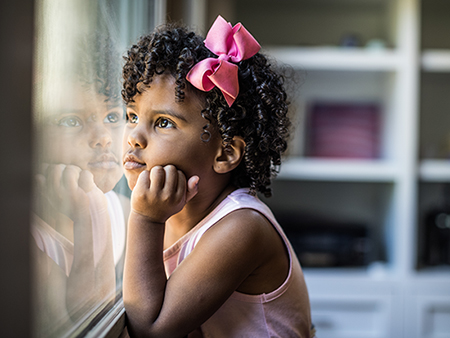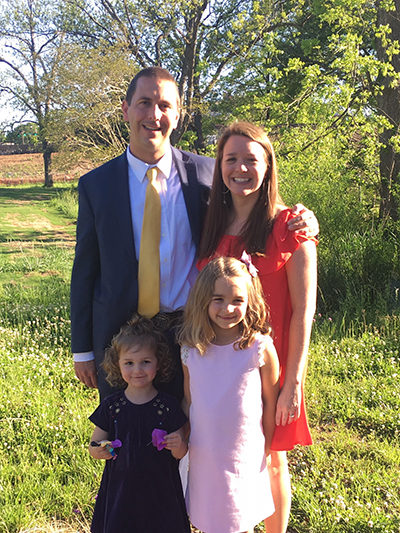Media contact: Bob Shepard
As a family medicine physician, I can tell you that we are in a uniquely uncertain time. The coronavirus, known as novel COVID-19, is a new virus that we have never seen before. This means that our bodies do not have immune systems used to fighting off this particular virus. We do not yet know exactly how the virus behaves. We also do not have a vaccine, and it may take more than a year to develop one.
 What we know
What we know
We are learning that many patients experience mild flu-like symptoms. That is reassuring for the vast majority of us. But we also know that people over 60 and patients with other health issues, such as diabetes, heart disease, lung disease or pregnancy, may have a harder time fighting off this virus. They often need extended stays in intensive care, requiring ventilators to help them breathe, and there are only so many beds and ventilators available.
This is the reason officials are urging everyone — not just the elderly or immunosuppressed — to take this situation very seriously.
Do this!
As you have surely heard by now, good tips to fend off the virus include:
- Wash your hands — often and for at least 20 seconds.
- Use hand sanitizer when you cannot access soap and water.
- Clean frequently used surfaces with disinfecting wipes.
- Cough into a tissue (then throw it away) or your elbow.
- Avoid touching your face.
- Stay away from others; practice social distancing.
- Isolate yourself if you are sick.
Parenting
Our situation is changing rapidly, and as I write this, I am planning for schools to be closed for several weeks. As a working mom, I can tell you I have a lot of logistical questions about what is ahead for my daughters. How will they fill their days? My husband and I are planning to establish as much of a routine as possible — one that involves our girls’ getting up, getting dressed, and performing regular school-like activities such as reading and math, as well as setting aside time each day for exercise and fun to keep them from going stir-crazy. Will they get more time on digital devices? Most likely, yes. Will they watch movies, play board games and generally lounge around? Yes. Chores? Definitely yes. Backyard scavenger hunts? Sure — fresh air and sunshine are great. Healthy meals and quality sleep? I sure hope so. Play dates with other friends and neighbors? Absolutely NOT!
 As a daughter of parents over 60, a mother of young girls, and a UAB family physician, DeLaney has plenty to keep her busy while the novel coronavirus affects every aspect of American life.Parenting your parents
As a daughter of parents over 60, a mother of young girls, and a UAB family physician, DeLaney has plenty to keep her busy while the novel coronavirus affects every aspect of American life.Parenting your parents
As a daughter, I can tell you that I have already let my parents and in-laws know that they are among the ones we are most concerned about. Anyone over 60 should be extremely cautious. I have told them to stay at home. They will be limiting their visits to the grocery store or having extended family grocery shop for them, and they will be attending worship services via the television, computer or another device. Speaking of devices, we will be calling and texting often to make sure that, though they may be alone, they are not lonely. I am encouraging everyone to also check in with other elderly family and friends, especially those who do not have a close-knit family network nearby.
Got symptoms? Don’t panic
And what if someone gets sick? More than likely, it will not be the coronavirus. We are still in flu season, and with the arrival of spring, allergies are also around the corner, if not already here. But if you or a family member develops a persistent cough, spikes a fever, or has shortness of breath or other respiratory issues, it is definitely worth a call to the doctor. Please do not panic, and do not rush to the clinic or the emergency room, where the sickest and most vulnerable patients require attention and protection. When my clinic fields these phone calls, we will ask about your history and whether you have come in contact with someone known to have the virus. If we suspect that you have been exposed, we will advise you to either wait out the illness at home if your symptoms are mild, or be admitted to a hospital if your symptoms are more severe.
There is no medicine to treat COVID-19. Treatment involves supportive care, managing the patients’ symptoms. If you want to get tested for peace of mind, there are now drive-through testing sites where you will not even need to leave your car — a professional will swab for a sample right through the window. Results will be available within 72 hours. A private company is administering these tests at Church of the Highlands on Grandview Parkway; there may be more to come. Visit assurancescientificlabs.com/coronavirus for operating hours.
Preparing
At UAB, our clinics and hospitals have been preparing for a crisis such as this for years. We have anticipated the threat of an emerging virus, and have planned and practiced how to manage it. We have protocols in place to help keep our patients and health care workers safe. But we must ask for everyone’s help. Please do everything you can to minimize your risk, as well as the risks of others. Yes, we have difficult and challenging times ahead. But with your help, we will better be able to care for your family, as well as the families of everyone else.
If you are experiencing symptoms, call your primary care physician or urgent care facility before coming into a clinic or office. If you are having a medical emergency, call 911.
For the latest COVID-19 information from the Alabama Department of Public Health, call 1-800-338-8374.
For frequently asked questions and to learn more about how UAB is addressing the situation, visit www.uab.edu/coronavirus.
Erin DeLaney, M.D., is a board-certified family medicine physician in the UAB Department of Family and Community Medicine. She received her medical degree from the University of South Alabama and completed her family medicine residency in Portland, Maine. In her time off, she enjoys traveling, reading, running, and spending time outside with her husband and two young daughters.